Yesterday was Blog Action Day AND Love Your Body Day.
Augh! Both things I wanted to blog about. If this were back to the excuse letter, I’d say that I was at a Board Meeting last night for a nonprofit serving the under- and un-insured, and well, doesn’t that give me a little slack? “No,” says the calendar. Well, I’m not so good with following rules anyway, so here goes.
The theme for Blog Action Day was POVERTY and one of the reasons I felt compelled to write about it today is because of my great disappointment that no one spoke about it during the debate last night. The issue of poverty is so dear, so important to me that I’ve thrown myself at three degrees, two schools, a hand-full of countries and a ton of work so that I could understand it better. Here are two posts I’ve written in the past about poverty. Global poverty — the fact that 1 in every 6 people on the planet lives on less than $1 a day — is one of the most important issues for us to discuss. It impacts all of the other issues, things like terrorism, health, economics, and environment, that we are so concerned about in this election.
One thing that was discussed in last night’s debate that has A LOT to do with poverty are free trade agreements. In particular, the candidate’s discussed the Colombia Free Trade Agreement, which McCain supported and Obama (rightly) did not. Obama very nicely summed up his reasons for not supporting the agreement: there were no environmental and labor protections in it. The topic of free trade offers great entree to a discussion on poverty.
A Question: how do the free trade agreements supported and promoted by G8, IMF, WB, and most importantly the U.S. impact global poverty?
Answer: one heck of a lot, and not in a good way.
This article sums up the complex issues, ideologies, and major players very well. It is an important read, because when summed up quickly and succinctly the bottom line goes something like this: The current form of free trade agreements are structured so that the wealthiest maintain solid advantage and the poorest are forced deeper into poverty. Patricio Aylwin, former President of the Republic of Chile, said the following at the opening ceremony of the Thirty-first session of the FAO Conference where he was delivering the McDougall Memorial Lecture, in honor of Frank McDougall, one of the founders of the Food and Agriculture Organization of the United Nations (FAO).
Like many issues in global health, poverty, and development, there is no quick soundbite that can completely and accurately sum up the issue without sounding extreme. In a take-my-word-for-it manner, I can sum it up in this way: free trade agreements offer opportunities and protections for multi-lateral corporations that extend far beyond issues of ‘trade’ (here is a video that discusses some of the non-trade issues involved — transcript); free trade agreements disproportionally impact women; free trade agreements further impoverish the rural poor; free trade is often tied to structural adjustment programs, which push countries deeper into neoliberal economic policies that further cripple their poor populations; and finally, that the economic ideologies that dominate World Bank, IMF, and G8 policies are misguided and misreported. I included a few links that I felt offered relatively short and concise insight into those issues, although the true reading list into these issues is much greater in both length and density.
Instead of offering an economic debate (I spent a good 10 pages of my doctoral comprehensive exams on this, if you are really desperate on my own words), I thought I’d offer a personal account.
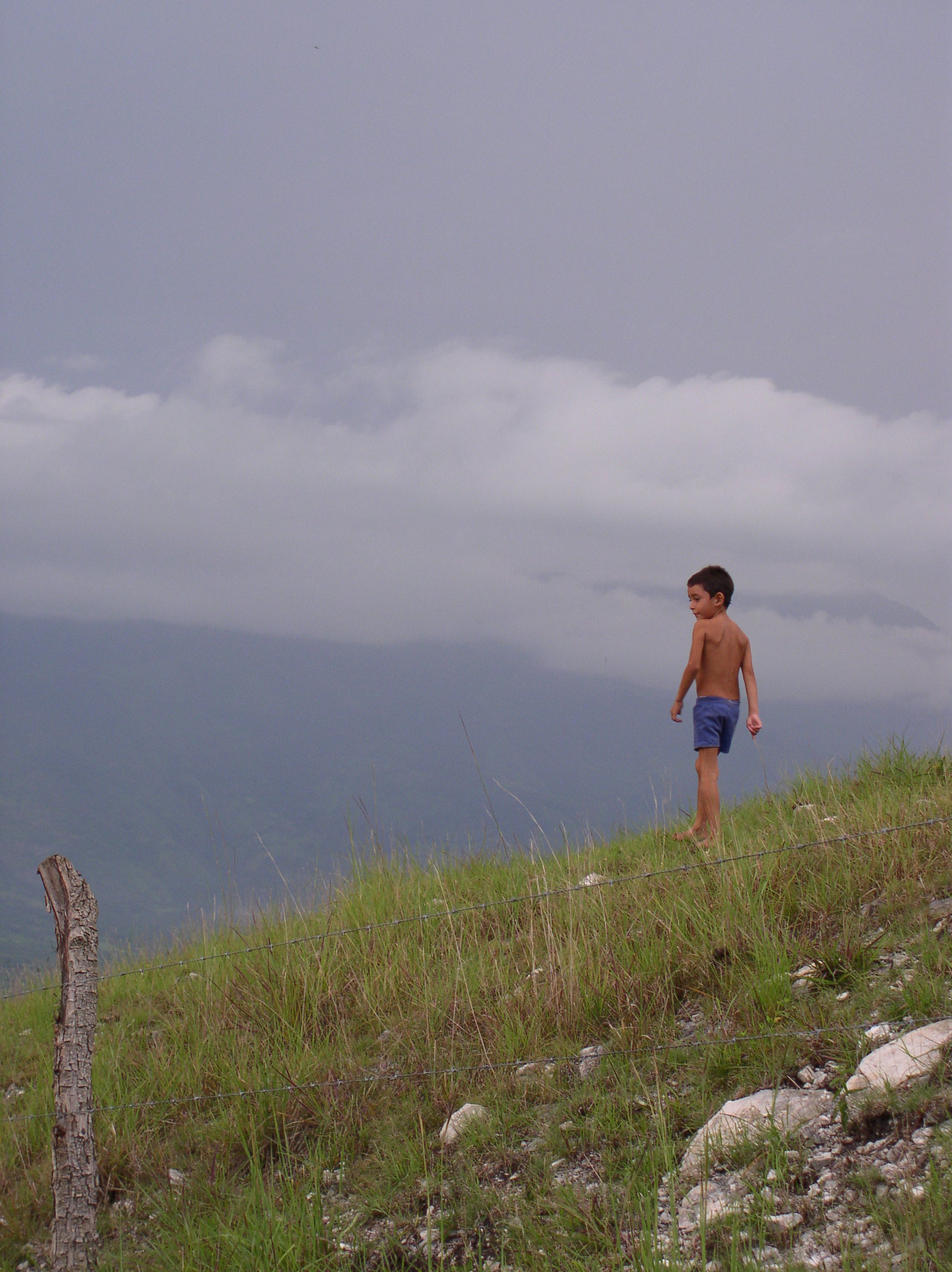
When I was working in Honduras in 2003 and 2004, I spent a lot of time traveling to remote villages in the mountains to talk to parteras (traditional birth attendants). Many of these meetings were pre-arranged, with parteras coming from even more remote areas to gather supplies and attend the trainings and focus groups we conducted. It was common for us to bring bags of USAID grain along for the ride to be distributed in these areas… bags of USAID grain, which had been grown and processed in the United States, and then shipped to remote farming communities in Honduras which were surrounded by fields of grain and legumes. What was happening??? Well, the value of the food those farmers were producing had dropped considerably. Families were forced to sell all that they could grow into order to survive… which meant that they had less food than they needed to live on. So although they were growing food, they had to sell more and more of what they grew in order to survive — and in very real terms, one season of drought could literally destroy their family. Their poverty wasn’t just a hard life, it was a live-or-die situation. The economic forces of structural adjustment and free trade amounted to growth in the country’s export, yes — because families had to produce more in order to compete. But at the cost of their own health and well-being. International trade advocates and financial institutions would call this situation a success because of the increase in export goods. The cost to the poor is not part of their equation.
Delivering those bags was a huge reason I decided to go for the PhD in International Health and Development. I realized in a very real and personal way that the ways in which we approached Global health and issues of poverty were skewed unfairly, and as a citizen of the United States, I felt obligated to at least try and do something about it.
Here are some pictures of us at a clinic delivering those bags in the mountains of north central Honduras (note the “USA” visable on the bags).
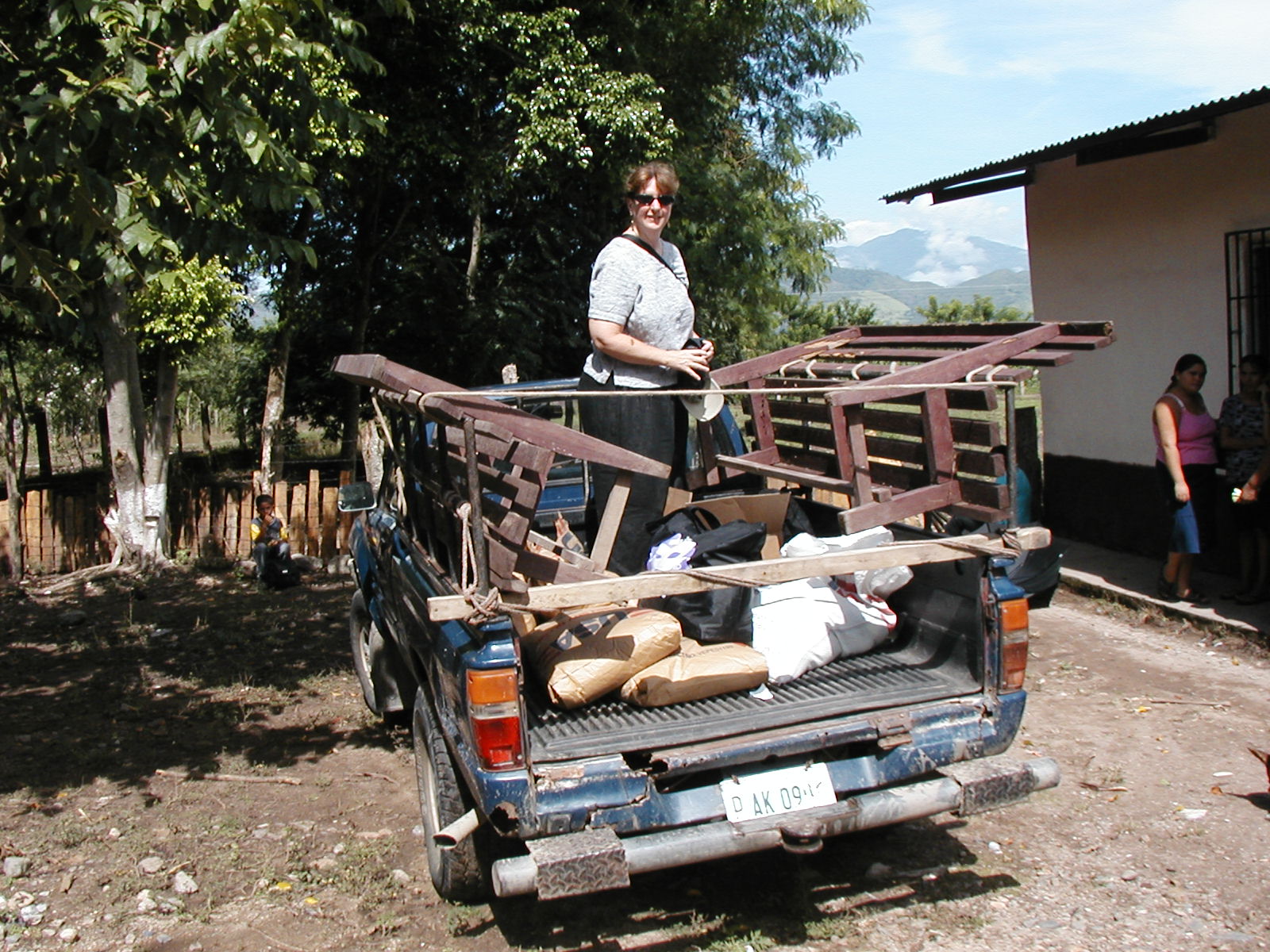
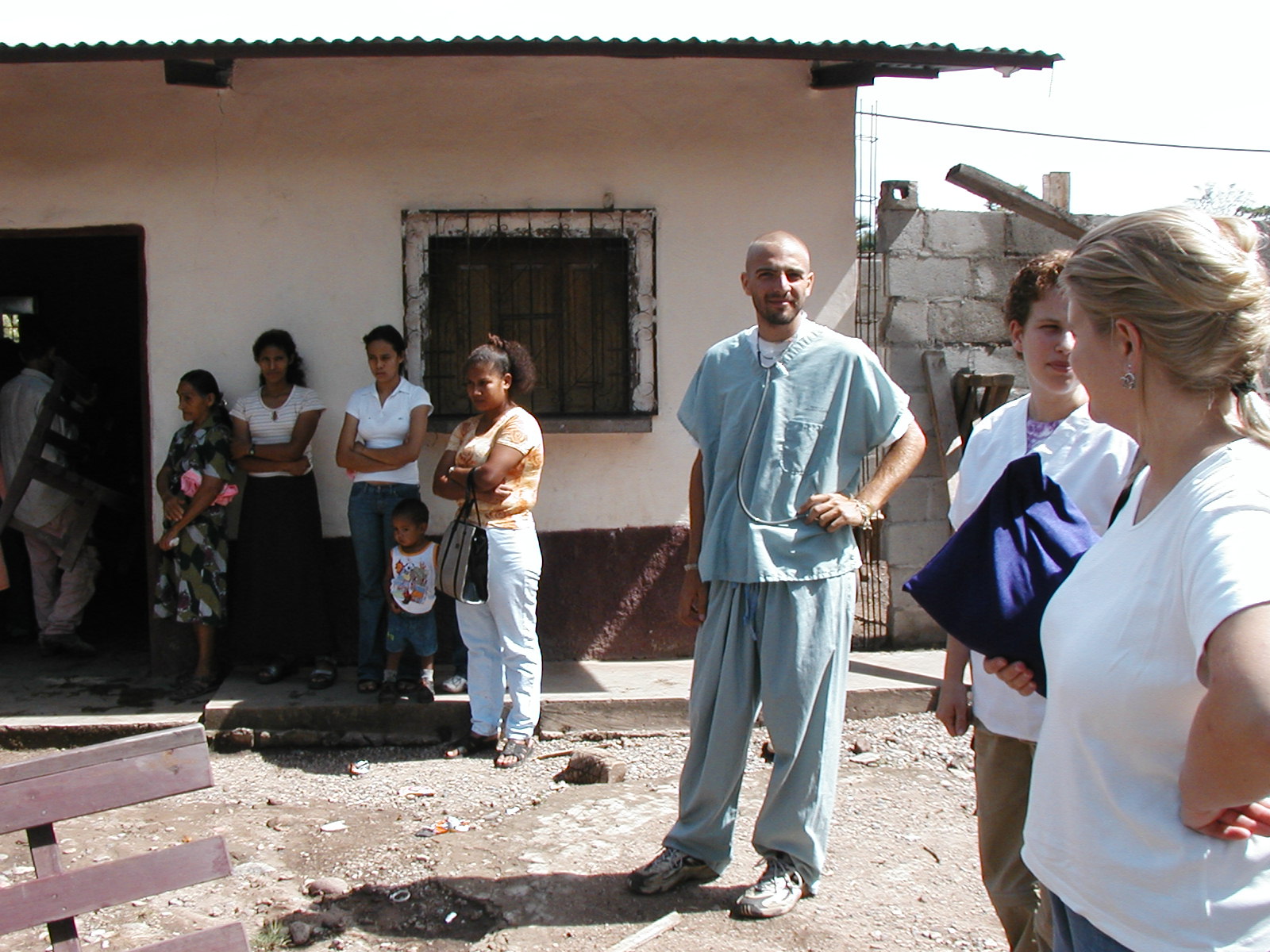
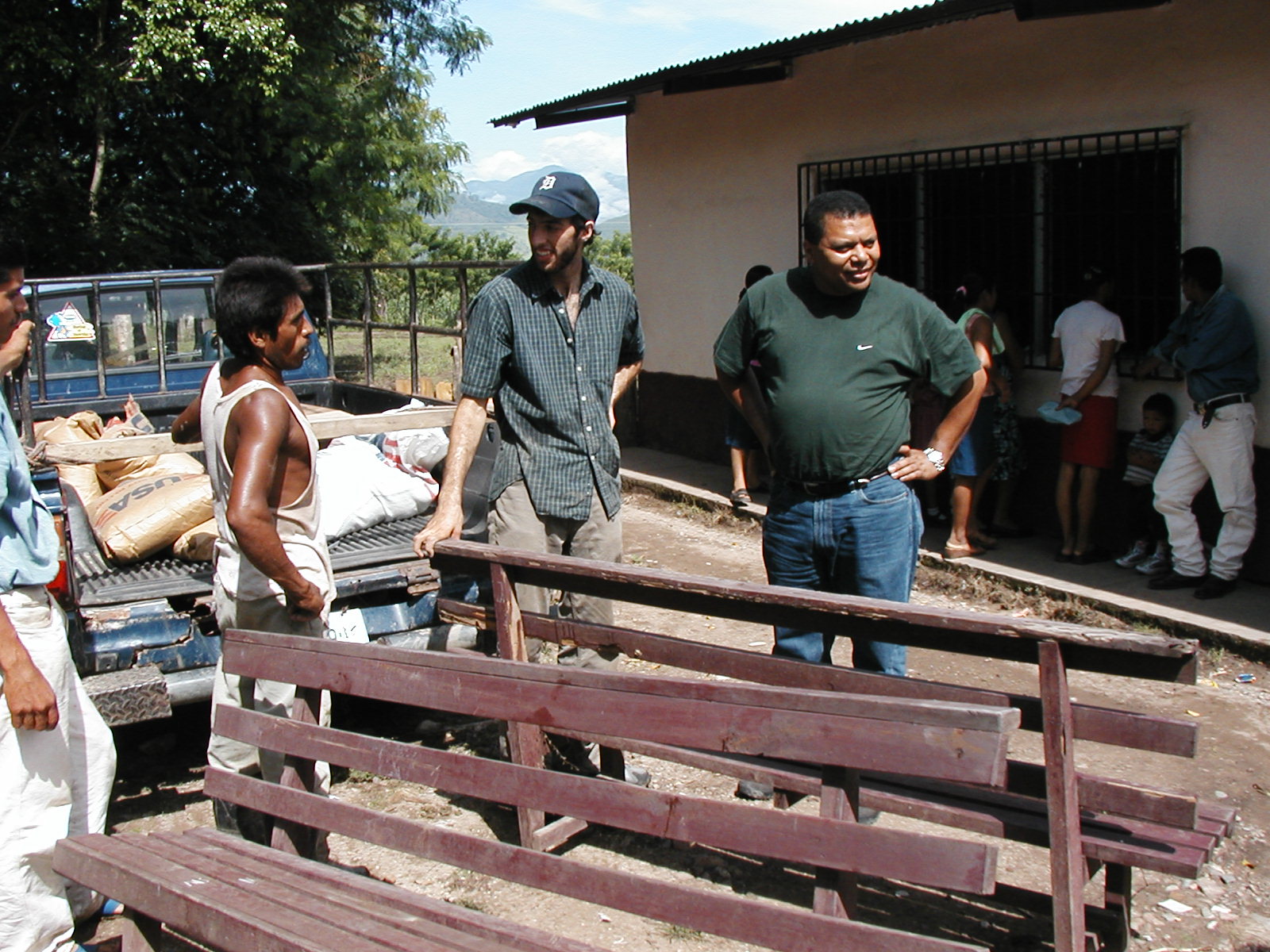
Following the lead of Alejna, who got it from Magpie, I will donate $2 to the International Forum on Globalization for every comment made on this post in the next 3 days (until Sunday at midnight — just in case others are late on this, too).
A day late, but better late than never.

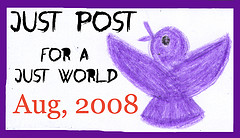
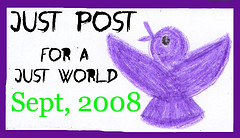
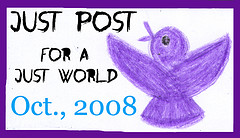


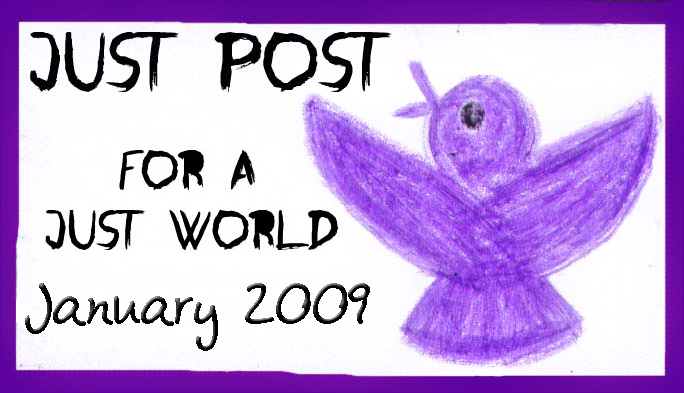
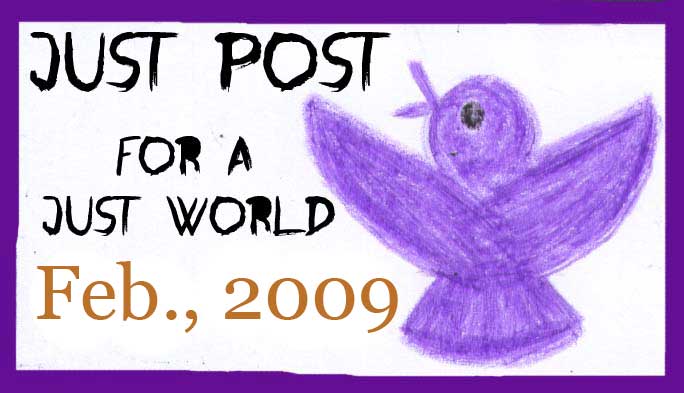








julie | 16-Oct-08 at 1:46 pm | Permalink
Cha-ching. $2 down. Super-Hosh rocks my world!
xoxo j
magpie | 16-Oct-08 at 5:39 pm | Permalink
Hi – So glad to see people filching my idea!
And yes, it’s a shame that it wasn’t discussed in the debate – though they did get on some stuff I didn’t expect.
Allen | 17-Oct-08 at 6:21 am | Permalink
The systems are really broken. But really complex. How can they be fixed? Are there incremental steps that can be taken toward a better system (or network of systems)? Or does the slate need to be wiped clean? And how could/would *that* happen short of a cataclysmic “event”?
alejna | 17-Oct-08 at 10:43 am | Permalink
I’m so glad you posted. Definitely better late than never. (And thanks for the link!)
I like the way you supplemented (and illustrated) your arguments about free trade with your experiences and observations from Honduras. It was very informative, and personal at the same time. (That’s one of the things I like best about blogging: the personal and the political, the formal and the informal, as well as various media formats, can all be so well intergrated.)
While it didn’t come up in the debate, I was pleased to see that the Obama/Biden campaign has some very concrete plans for fighting poverty on its website. At least poverty in the US. I would be interested to know more about their position on international poverty.
admin | 17-Oct-08 at 4:37 pm | Permalink
Allen: there is a lot we can do to improve the situation. Cancel debt to heavily indebted countries, provide aid not connected to neoliberal policies that force privatization and open markets. Provide meaningful aid, rather than politically popular initiatives. Get rid of proselytizing missionaries. (Okay, that last one wasn’t really on topic.)
A small first step? Raise awareness. Few people really understand what poverty IS and (most importantly) HOW WE CONTRIBUTE TO IT. Recognizing that we all have responsibility is the biggest thing we can do, I think.
Another big step: tax corporations.
I really feel, though, that the first thing to be done is radically change the economic belief systems that provide the basis for such a skewed understanding of economy and wealth. Although the problems of using GDP as a measure of well-being are very well established and accepted, it remains the standard — until we adopt other indicators to more fully understand life quality, the way that we talk about and study poverty won’t be in line with reality.
admin | 17-Oct-08 at 4:43 pm | Permalink
Magpie: it was a great idea, thank you!! Another thing I am picking up from you… the word “filch.” It just feels so good to say.
Alejna: thank you for pointing out the Obama/Biden discussion on poverty on the website… I should have provided a link, so here it is: http://www.barackobama.com/issues/poverty/
In terms of international issues, I just like that fact that we may have a president who actually can pronounce Pakistan correctly!! And, I really, really like that Obama picked Biden as a running mate specifically because of Biden’s international experience and interests. He, at least, seems to ‘get’ the need of investment of schools and aid to Pakistan and was instrumental during the genocide in Kosovo/Sarajevo… even if we did go in much too late.
usotski | 17-Oct-08 at 8:55 pm | Permalink
Great story, I’m still struggling to find out how I can help with this situation in a more significant way.
Emily | 19-Oct-08 at 12:19 pm | Permalink
Great post & very educational!!
cheritycall | 28-Oct-08 at 12:57 am | Permalink
Hi, Give something to help those hungry people in Africa and India,
I created this blog about this subject:
on http://tinyurl.com/6bz6t7
Just Posts October! « Flying Tomato Farms | 10-Nov-08 at 3:57 pm | Permalink
[…] Bodies, Our Selves, Our CHILDREN’S Selves, and Sings The Tune Without The Words Holly with Blog Action Day (After) Jaelithe at MOMocrats with Blog Action Day: Education is the key to escaping poverty Janelle with […]
Cold Spaghetti » Blog Archive » Because I need a happy place. | 11-Nov-08 at 3:13 pm | Permalink
[…] property within and are moving to in January of the coming year. Magpie’s charge inspired me to donate $25 to charity. My own sister-in-law made a strong argument about how the legacy of slavery is still […]
Paula | 10-Dec-08 at 3:53 pm | Permalink
Thank you for your insights on this. It’s a topic I know very little about, but very much want to understand better.
Cold Spaghetti » Blog Archive » Season of Giving | 12-Dec-08 at 11:39 am | Permalink
[…] okay. I admit it. I am trying to find yet another way to say I’ve filched something from Magpie. Technically, all sorts of people give away stuff on their blogs, too, but it was actually trying […]